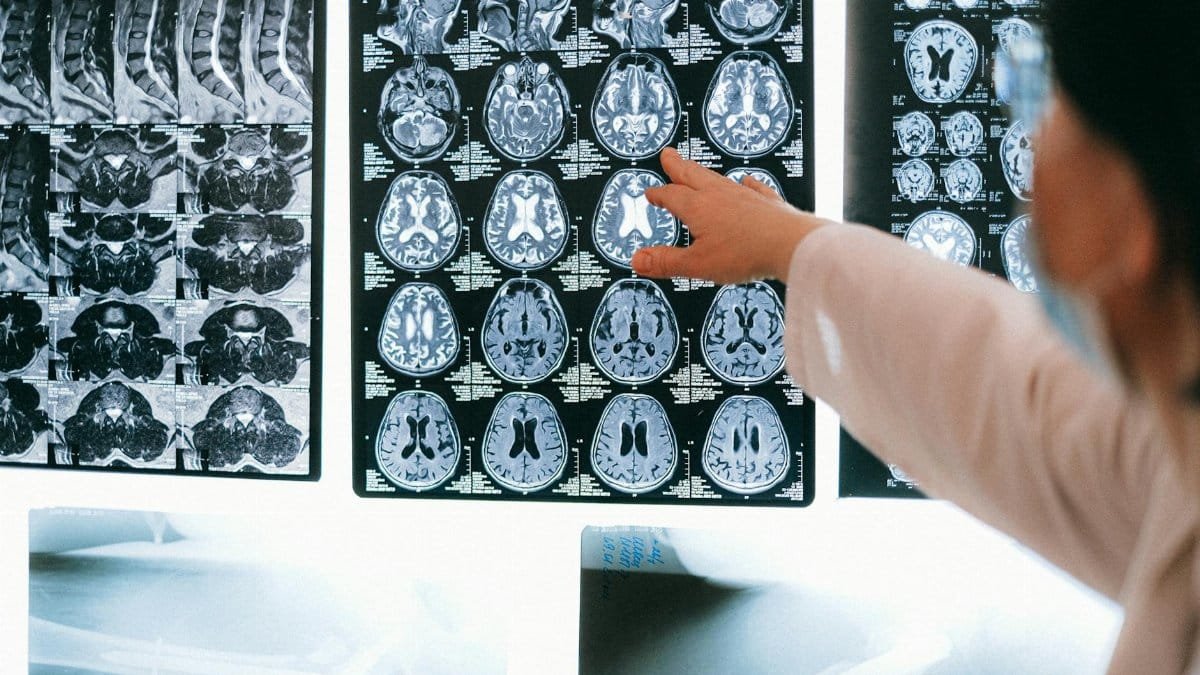A recent study from the American Psychological Association found that nearly 12% of U.S. adults have turned to hypnotherapy for stress relief in the past year, up from just 5% a decade ago. This surge reflects a broader shift toward alternative therapies amid rising mental health concerns. People are seeking ways to quiet the noise of daily life, from work pressures to personal conflicts. Hypnotherapy, often misunderstood as mere stage entertainment, taps into the subconscious to foster real change. It involves guided relaxation and focused attention, helping individuals reframe thoughts and behaviors. For many, it’s a tool to unlock inner peace, especially in navigating relationships strained by unspoken tensions. As we move into 2025, this practice is gaining traction not just in wellness circles but in mainstream health discussions, promising a bridge between mind and body that conventional methods sometimes overlook.
The Science Behind Hypnotherapy

At its core, hypnotherapy draws on principles of neuroscience and psychology. Researchers have long explored how trance-like states alter brain activity. During a session, the brain shifts into a mode where the conscious mind takes a backseat, allowing deeper suggestions to take root. This isn’t magic; it’s rooted in how our neural pathways respond to focused suggestion.
Studies show that hypnosis can modulate activity in the anterior cingulate cortex, a region tied to attention and emotion regulation. One compelling example comes from work at Stanford University, where scans revealed reduced pain perception under hypnosis. Participants reported feeling detached from discomfort, as if observing it from afar. This points to hypnotherapy’s potential in managing chronic conditions.
Yet, the science isn’t without debate. Some experts argue that results stem more from placebo effects than profound brain changes. Still, evidence builds. A review in the journal Psychological Bulletin analyzed dozens of studies, concluding that hypnotherapy enhances outcomes in therapy for anxiety and addiction. It’s a reminder that what happens in the mind ripples outward.
How Hypnotherapy Rewires the Brain

Imagine the brain as a bustling city, with thoughts zipping like traffic. Hypnotherapy acts like a skilled traffic controller, easing jams and redirecting flow. Sessions often begin with deep breathing, guiding the client into relaxation. From there, the therapist plants positive affirmations, which can reshape neural connections over time.
Neuroplasticity plays a key role here. Our brains aren’t fixed; they adapt based on experiences. Hypnotherapy leverages this by encouraging new patterns. For instance, someone struggling with insomnia might visualize a peaceful sleep routine, training the brain to associate bedtime with calm rather than worry.
One anonymized account from online discussions captures this vividly: a user described how, after weeks of sessions, nightmares that plagued their nights faded, replaced by restful dreams. “It was like flipping a switch in my head,” they shared. Such stories highlight the subtle yet profound shifts possible. Research from the National Institutes of Health supports this, noting improved sleep metrics in hypnotic interventions.
Of course, not every brain responds the same. Factors like openness to suggestion influence effectiveness, adding layers to this mental makeover.
Physical Transformations Through Suggestion

Beyond the mind, hypnotherapy influences the body in tangible ways. Stress, that invisible weight, often manifests physically—tight shoulders, racing hearts. By inducing relaxation, hypnotherapy lowers cortisol levels, easing these symptoms.
Take blood pressure, for example. A study published in the American Heart Association’s Hypertension journal found that participants who underwent hypnotherapy sessions saw modest drops in systolic readings. It’s as if the body, tuned by the mind’s calm, resets its rhythms.
Another angle involves pain management. Athletes recovering from injuries sometimes use it to accelerate healing, visualizing tissue repair. This mind-body link isn’t new; it’s echoed in practices like yoga. Yet hypnotherapy offers a structured path, making it accessible for those new to such concepts.
Consider a middle-aged runner sidelined by knee pain. Through guided sessions, she learned to dissociate from the ache, allowing her to train again. Her story, shared in wellness groups, underscores how physical relief stems from mental shifts. In 2025, with healthcare costs rising, such approaches could become more common.
Hypnotherapy’s Role in Healing Relationships

Relationships thrive on communication, but unspoken fears often erode bonds. Hypnotherapy steps in by uncovering these hidden barriers. Therapists guide clients to explore subconscious beliefs about trust or vulnerability, fostering empathy.
In couples’ sessions, partners might visualize harmonious interactions, planting seeds for better dynamics. It’s not about erasing conflicts but reframing them. One couple, anonymized here, reported that after joint hypnotherapy, arguments turned into discussions. “We stopped reacting from old wounds,” one said.
This ties into broader trends in relational healing. With divorce rates hovering around 40% in the U.S., tools like this offer hope. A report from the Pew Research Center on family structures notes increasing interest in alternative therapies for emotional support.
Yet, it’s no quick fix. Building relational resilience requires commitment, and hypnotherapy complements traditional counseling, not replaces it. The key lies in addressing both individual and shared subconscious patterns.
Debunking Common Myths

Many picture hypnotherapy as mind control, thanks to Hollywood portrayals. In reality, no one can force actions against your will. You’re always in control, able to end the session anytime.
Another myth: it’s only for the gullible. Science shows otherwise; even skeptics benefit if they’re open. A meta-analysis in the International Journal of Clinical and Experimental Hypnosis reviewed this, finding efficacy across personality types.
People also worry about false memories. While rare, ethical practitioners avoid suggestive questioning. The American Society of Clinical Hypnosis emphasizes guidelines to prevent this.
By clearing these misconceptions, hypnotherapy emerges as a legitimate tool, not fringe entertainment. As awareness grows in 2025, more might embrace it without hesitation.
Real-Life Stories of Change

Stories bring hypnotherapy to life. Take Sarah, a fictional composite based on common experiences: a teacher overwhelmed by anxiety. Sessions helped her visualize confidence, transforming her classroom presence. Colleagues noticed her newfound calm.
Or consider Mark, battling smoking addiction. Through hypnosis, he reframed cigarettes as unnecessary crutches. Months later, he was smoke-free, crediting the mental shift.
These narratives echo findings from clinical trials. One at Harvard Medical School showed hypnosis aiding weight loss by altering eating habits subconsciously.
Such transformations aren’t universal, but they illustrate potential. In online forums, users often share similar breakthroughs, like overcoming phobias that once limited social lives. It’s a testament to the practice’s reach.
Getting Started: What to Expect

Curious about trying hypnotherapy? Start by finding a certified practitioner. Look for credentials from bodies like the American Board of Hypnotherapy.
A typical session lasts 45-60 minutes. You’ll discuss goals, then relax into a guided state. It’s comfortable, often in a quiet office or virtually.
Costs vary, from $75 to $200 per session. Insurance rarely covers it, but some plans do for specific issues like pain management.
Preparation helps: come with an open mind. Journaling post-session can reinforce insights. As telehealth expands in 2025, access improves, making it easier to begin.
Potential Drawbacks and Ethical Considerations

No therapy is risk-free. Hypnotherapy might unearth buried emotions, leading to temporary distress. It’s crucial to work with licensed professionals to navigate this.
There’s also the chance of dependency on sessions rather than building self-reliance. Critics point out varying regulation across states, so vetting is key.
Ethically, consent and transparency matter. Reputable therapists explain processes upfront, ensuring clients feel empowered.
Balancing benefits with cautions, hypnotherapy suits many but isn’t for everyone. Those with severe mental health issues should consult doctors first.
Integrating Hypnotherapy into Daily Life

Once familiar, incorporate elements daily. Self-hypnosis apps guide quick relaxations, fitting into busy schedules.
Combine with mindfulness for amplified effects. Morning routines might include positive visualizations, setting a tone for the day.
In relationships, practice shared breathing exercises drawn from hypnotherapy principles. This builds intimacy without formal sessions.
As 2025 brings more digital tools, blending hypnotherapy with apps could democratize access, promoting widespread wellbeing.
The Broader Impact on Wellbeing

Ultimately, hypnotherapy contributes to holistic health. By aligning mind and body, it fosters resilience amid life’s chaos.
In a nation grappling with burnout, this practice offers a gentle counterpoint. Trends suggest growing integration into corporate wellness programs.
Reflecting on its evolution, from fringe to mainstream, hypnotherapy signals a cultural embrace of inner work. For those seeking balance, it might just be the key.
